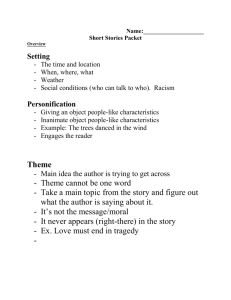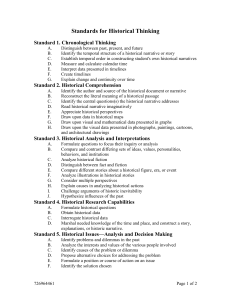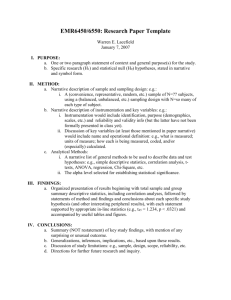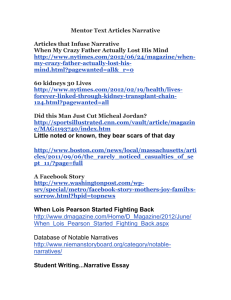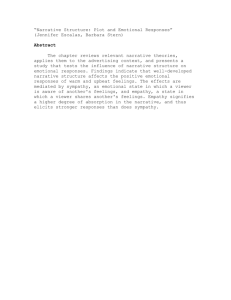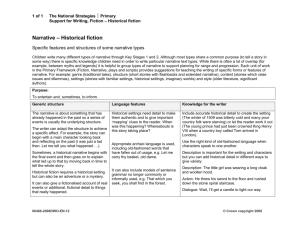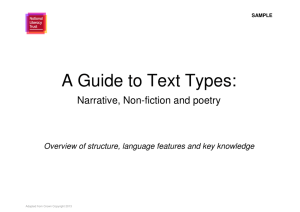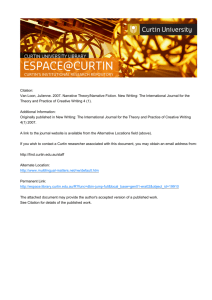Narrative – Science Fiction
advertisement
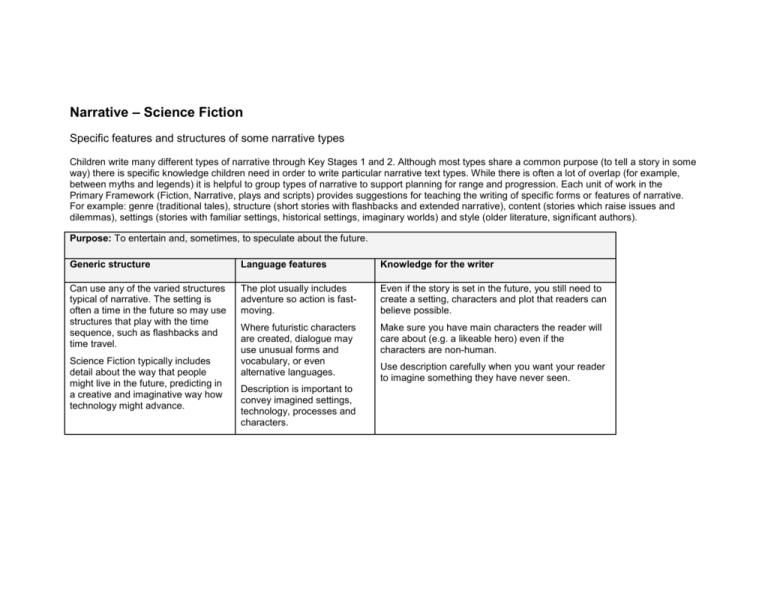
Narrative – Science Fiction Specific features and structures of some narrative types Children write many different types of narrative through Key Stages 1 and 2. Although most types share a common purpose (to tell a story in some way) there is specific knowledge children need in order to write particular narrative text types. While there is often a lot of overlap (for example, between myths and legends) it is helpful to group types of narrative to support planning for range and progression. Each unit of work in the Primary Framework (Fiction, Narrative, plays and scripts) provides suggestions for teaching the writing of specific forms or features of narrative. For example: genre (traditional tales), structure (short stories with flashbacks and extended narrative), content (stories which raise issues and dilemmas), settings (stories with familiar settings, historical settings, imaginary worlds) and style (older literature, significant authors). Purpose: To entertain and, sometimes, to speculate about the future. Generic structure Language features Knowledge for the writer Can use any of the varied structures typical of narrative. The setting is often a time in the future so may use structures that play with the time sequence, such as flashbacks and time travel. The plot usually includes adventure so action is fastmoving. Even if the story is set in the future, you still need to create a setting, characters and plot that readers can believe possible. Where futuristic characters are created, dialogue may use unusual forms and vocabulary, or even alternative languages. Make sure you have main characters the reader will care about (e.g. a likeable hero) even if the characters are non-human. Science Fiction typically includes detail about the way that people might live in the future, predicting in a creative and imaginative way how technology might advance. Description is important to convey imagined settings, technology, processes and characters. Use description carefully when you want your reader to imagine something they have never seen.


